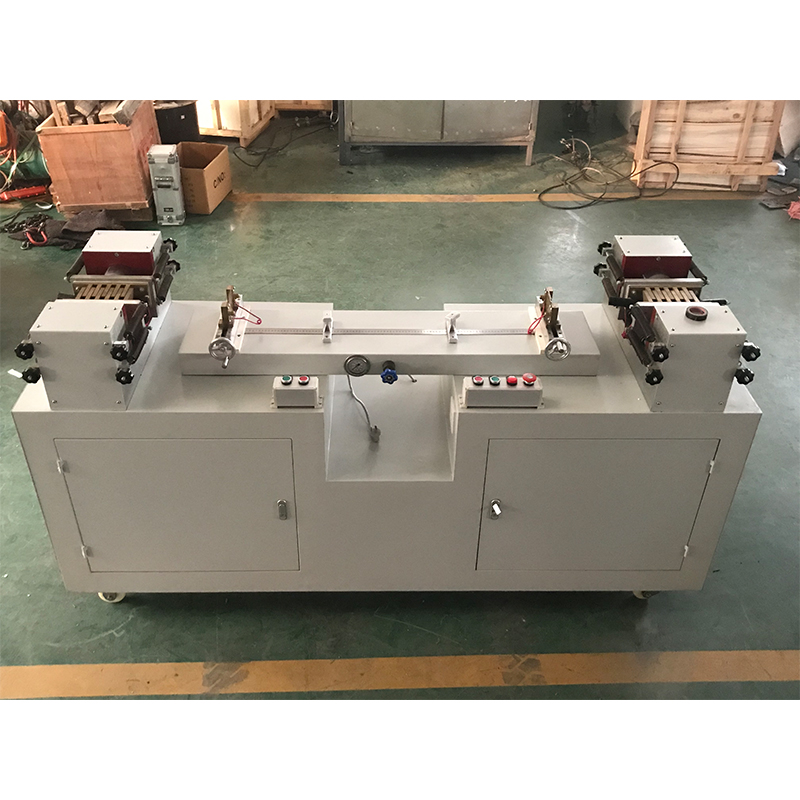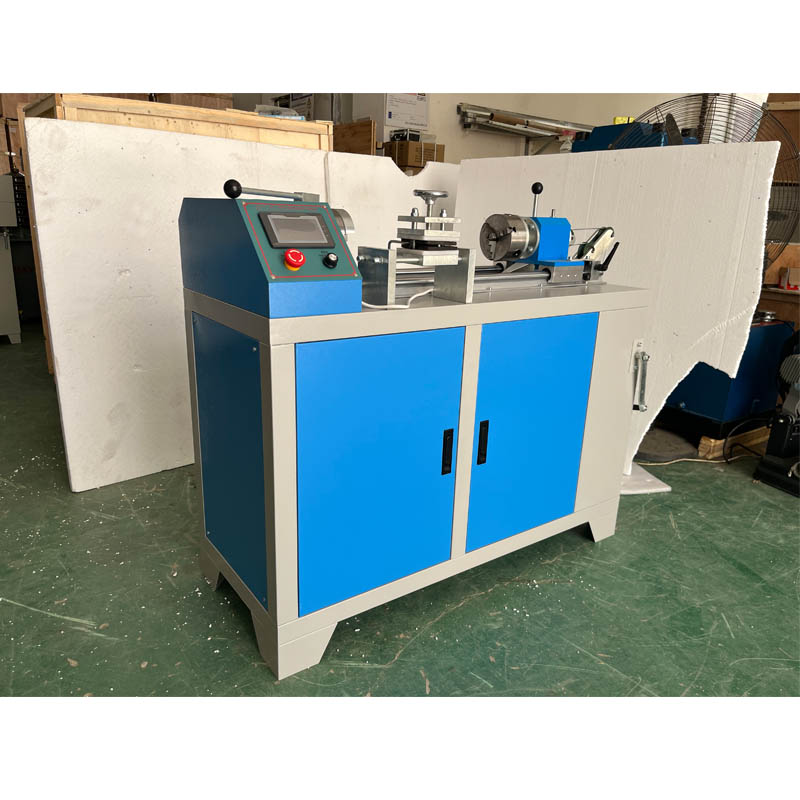Universal Testing Machines Precision & Durability from Top Manufacturers
- Introduction to Universal Testing Machines and Their Technical Capabilities
- Technical Advantages Driving Modern Material Testing
- Critical Selection Criteria for Industrial Testing Equipment
- Comparative Analysis of Leading Global Manufacturers
- Supplier Networks and Global Export Infrastructure
- Customized Testing Solutions for Industry-Specific Requirements
- Application Case Studies Across Key Industrial Sectors

(universal testing machine)
Understanding Universal Testing Machines and Their Industry Impact
Universal testing machines (UTMs) form the backbone of material quality verification across global manufacturing sectors. These systems measure tensile strength, compression resistance, flexural properties, and other critical material characteristics with precision exceeding ±0.5% of reading value. The global UTM market, valued at $828.7 million in 2022, projects 5.8% CAGR growth through 2028 according to industry analysis reports. Leading manufacturers have refined electromechanical and servo-hydraulic technologies to deliver testing precision that meets ISO 7500-1 and ASTM E4 standards, enabling manufacturers to validate material specifications before production cycles.
Technical Advantages Driving Modern Material Testing
Contemporary UTMs incorporate closed-loop digital controllers managing displacement rates from 0.001 to 1,500 mm/min, with load capacities spanning 500N micro-testing units to 3,000kN heavy-duty frames. Advanced systems feature biaxial testing capabilities, temperature chambers (-70°C to +300°C), and digital image correlation for strain mapping. Microprocessor-controlled units sample data at 2,000 Hz, capturing yield points with resolution down to 0.015 μm. Instrumented fixtures equipped with Class 0.5 load cells provide measurement accuracy exceeding 99.5% across the force spectrum. Modern controllers include pre-programmed testing protocols for ISO, ASTM, and DIN standards while offering custom scripting interfaces.
Critical Selection Criteria for Industrial Testing Equipment
Selecting appropriate universal testing equipment requires evaluating force capacity requirements against material specifications—polymers typically demand under 50kN capacities while aerospace composites require 300kN+ frames. Consider vertical test space requirements for product-specific jigs; standard units provide 1-3 meter gauge lengths. Crucially, determine required auxiliary systems: environmental chambers add 25-40% to baseline costs but enable thermal testing. Software architecture determines compliance capabilities; ASTM-compliant systems include pre-configured templates for over 200 test methods, significantly reducing validation timelines. Serviceability remains paramount with modular designs allowing component replacement within 4 business hours.
Global Manufacturing Landscape Comparative Analysis
| Manufacturer | Load Range | Precision Rating | Customization Depth | Global Service Centers | Lead Time (weeks) |
|---|---|---|---|---|---|
| Instron Corporation | 100N - 3000kN | ±0.25% | Standard | 32 | 8-10 |
| ZwickRoell | 50N - 2500kN | ±0.2% | High | 27 | 12-14 |
| MTS Systems | 500N - 3000kN | ±0.15% | Advanced | 19 | 14-16 |
| Shimadzu | 100N - 2000kN | ±0.3% | Medium | 24 | 6-8 |
Specialist UTM manufacturers dominate different capability segments: Instron maintains leadership in standard ASTM/ISO configurations while ZwickRoell specializes in multi-axis systems. MTS delivers advanced actuator integration for complex simulation requirements. Asian manufacturers like Shimadzu provide competitive pricing at 15-30% below Western counterparts for basic configurations, though with limited customization options. Engineering analysis reveals 20% lower total ownership costs over 10-year operations for servo-hydraulic versus electromechanical systems in continuous testing environments.
Supplier Networks and International Export Operations
Leading universal testing machine
suppliers maintain regional inventories to reduce delivery times; European suppliers average 30-day delivery for standard units versus 90+ days for full customization. Export compliance documentation adds 5-10 days processing for shipments requiring IEC/EN certification or hazardous material declarations. Major exporters utilize temperature-controlled container solutions to maintain calibration integrity during transit, with desiccant systems maintaining humidity under 20% RH. Customs clearance procedures require harmonized system codes 9031.20.00 for mechanical testing equipment. Post-shipment calibration validation typically shows less than 0.02% deviation post-transit when proper stabilization protocols are followed.
Customized Testing Solutions for Industry Requirements
Specialized UTM configurations include 800°C-capable furnaces for turbine blade testing, submersion tanks for marine components, and cleanroom-rated assemblies for medical device validation. Aviation sector demands drive multi-axis configurations simulating wing deflection under 50-tonne loads with positional accuracy of ±0.01 mm. Polymer manufacturers require environmental chambers with rapid temperature cycling (30°C/minute transition rates) during tensile testing. ISO 17025-certified facilities perform machine validation using Class 00 calibration weights traceable to NIST standards. Modern systems integrate IoT connectivity for predictive maintenance, analyzing hydraulic pressure fluctuations to schedule component replacements with 98% failure prediction accuracy.
Universal Testing Machine Suppliers and Exporters: Enabling Industrial Quality Verification
Automotive manufacturers employ custom UTMs for seatbelt anchorage testing, recording peak loads exceeding 16.2 kN with data sampling every 5 milliseconds. Aerospace exporters utilize machines capable of 8-channel strain gauge measurements during wing spar testing to FAA AC 20-107B standards. Construction material suppliers validate rebar yield strength using hydraulic systems applying 1500kN compressive forces while measuring deflection simultaneously. Medical device manufacturers conduct 1 million cycle fatigue tests on implant materials within environmental chambers simulating physiological conditions. Certified universal testing machine exporters provide documented traceability certificates confirming calibration against NMI references, with audit trails covering every adjustment performed throughout equipment lifecycle.

(universal testing machine)
FAQS on universal testing machine
Q: What factors should I consider when choosing universal testing machine manufacturers?
A: Prioritize manufacturers with ISO certification, industry experience, and compliance with ASTM/ISO standards. Check their testing machine range, customization options, and after-sales support for optimal reliability.
Q: How do universal testing machine suppliers ensure product quality?
A: Reputable suppliers conduct rigorous quality control, including calibration and material testing. They often provide third-party certifications and trial runs to validate machine performance before delivery.
Q: What makes universal testing machine exporters competitive globally?
A: Top exporters adhere to international shipping standards and offer multilingual technical support. They ensure machines meet destination-country regulations and provide localized spare part networks for faster service.
Q: Can universal testing machines handle multiple material types?
A: Yes, advanced models support metals, plastics, composites, and textiles through interchangeable grips and sensors. Manufacturers often provide configurable software to adapt testing protocols across materials.
Q: Do universal testing machine manufacturers offer maintenance services?
A: Most manufacturers provide annual maintenance contracts (AMCs), on-site training, and remote diagnostics. Leading suppliers maintain global service hubs for rapid technician dispatch and part replacements.
-
The Role of Tensile Force Testers in Quality Control and Material Science
NewsAug.01,2025
-
Maintenance and Safety Tips for Aging Ovens
NewsAug.01,2025
-
Density Balance in Forensic Science
NewsAug.01,2025
-
Advanced Optical Measurement Technologies
NewsAug.01,2025
-
A Buyer’s Guide to Tensile Test Machines
NewsAug.01,2025
-
Why the Conductor Resistance Constant Temperature Measurement Machine Redefines Precision
NewsJun.20,2025
 Copyright © 2025 Hebei Fangyuan Instrument & Equipment Co.,Ltd. All Rights Reserved. Sitemap | Privacy Policy
Copyright © 2025 Hebei Fangyuan Instrument & Equipment Co.,Ltd. All Rights Reserved. Sitemap | Privacy Policy
